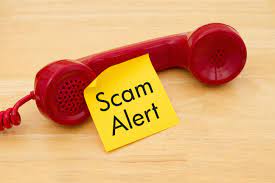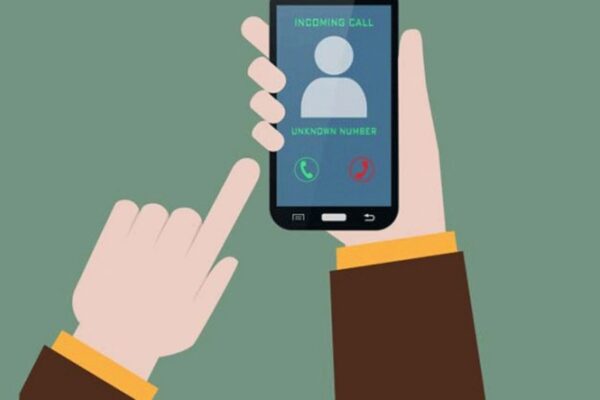Who called me Uk from: 01174632802 / 0117 4632802 / 0117-463-2802 / 441174632802 / +441174632802 / +44 1174632802 this Number?
Introduction
warning 01174632802 spam call in uk : dominated by technology and interconnectedness, communication is easier than ever. However, this convenience also comes with its own set of challenges, one of which is the menace of spam calls.
01174632802 These unwanted calls not only disrupt our daily lives but can also be used for malicious purposes. In the United Kingdom, a notorious spam caller with the number 01174632802 has been causing havoc. we will delve into the depths of this issue, exploring the nature of spam calls, their potential consequences, and how you can protect yourself against them in the UK.
The Menace of Spam Calls
Spam calls, also known as nuisance calls, are unsolicited calls that often come from telemarketers, scammers, or automated systems. They can range from annoying sales pitches to dangerous scams, posing a serious threat to the privacy and security of individuals. While spam calls are a global issue, the United Kingdom has not been immune to this problem. The number 01174632802 has gained notoriety for being associated with a significant number of spam calls.
Also read : https://thenewshunts.com/02922643994-who-called-me-in-uk-029-area-code/
Understanding the Nature of the 01174632802 Spam Call
The 01174632802 spam call, like many other nuisance calls, is a significant concern for residents of the UK. To tackle this issue effectively, it is essential to understand the nature of the calls. These calls often involve the following:
- Phishing Attempts: Many spam calls are attempts to gather personal information, such as banking details or Social Security numbers, to engage in identity theft or other fraudulent activities.
- Investment Scams: Some spam calls promise lucrative investment opportunities that are too good to be true, ultimately swindling victims out of their hard-earned money.
- Unsolicited Sales Pitches: Telemarketers often make unsolicited sales calls, offering products or services that may or may not exist, with the goal of pressuring individuals into making purchases.
- Automated Calls: Automated systems can generate spam calls, making it difficult to engage with a real person and seek clarification.
The Consequences of Falling Victim to Spam Calls
Falling victim to spam calls can have serious consequences, including:
- Financial Loss: Scammers can trick individuals into providing their financial information or making payments, resulting in significant monetary losses.
- Identity Theft: Phishing attempts can lead to identity theft, which can take years to resolve and cause immense stress and financial hardship.
- Emotional Distress: Dealing with constant spam calls can cause significant emotional distress, leading to anxiety, fear, and a decreased sense of security.
- Loss of Trust: Trust in phone communication can be eroded, making it challenging to discern legitimate calls from spam ones.
How to Protect Yourself Against the 01174632802 Spam Call and Others
Protecting yourself from spam calls is essential, and there are several strategies to do so:
- Register with the Telephone Preference Service (TPS): The TPS allows you to opt out of receiving unsolicited calls. 01174632802 By registering, you can reduce the number of spam calls you receive.
- Use Call Blocking Apps: Various apps are designed to block spam calls automatically. These apps can identify and filter out nuisance calls before your phone even rings.
- Be Wary of Unsolicited Calls: If you receive a call from an unknown number, be cautious. Never provide personal or financial information over the phone without verifying the caller’s legitimacy.
- Verify the Identity of the Caller: If you suspect a call may be spam, ask the caller for their contact information and verify it through official channels, such as a company’s website.
- Report Spam Calls: Both the TPS and the Information Commissioner’s Office (ICO) in the UK allow you to report spam calls, which can help authorities take action against the culprits.
- Update Your Phone’s Software: Ensure that your phone’s operating system and call blocking features are up-to-date, as manufacturers often release updates to combat spam calls.
Conclusion
Spam calls like the 01174632802 caller represent a significant problem in the UK and around the world. Understanding the nature of these calls and their potential consequences is crucial for protecting yourself and your loved ones. By implementing the suggested measures, such as registering with the TPS, using call blocking apps, and being cautious with unsolicited calls, you can significantly reduce your exposure to spam calls and maintain your privacy and security in an increasingly connected world. Staying informed and vigilant is the key to safeguarding yourself against the ever-evolving threats of spam calls.
FAQ
-
Is the Phone Number Legitimate?
- It’s essential to verify the legitimacy of the phone number. If you suspect a call is spam, you can check online databases or use a reverse phone lookup service to see if others have reported it as spam.
-
How Can I Block Spam Calls?
- Most mobile devices offer features to block or filter calls. You can add the number to your phone’s block list or consider using a dedicated call-blocking app.
-
What Should I Do If I Receive a Spam Call?
- If you receive a spam call, it’s best not to engage with the caller. Avoid providing personal information or confirming any details. You can hang up and report the call to your mobile service provider.
-
Can I Report Spam Calls to Authorities?
- Yes, in the UK, you can report spam calls to the Information Commissioner’s Office (ICO). They handle complaints related to unsolicited marketing calls. You can find tWhat Are Common Types of Phone Scams?he ICO’s website for more information on how to report.
-
What Are Common Types of Phone Scams?
- Phone scams come in various forms, such as phishing calls, tech support scams, IRS scams, and more. Scammers may pose as government agencies, utility companies, or banks to trick you into revealing sensitive information or making payments.





